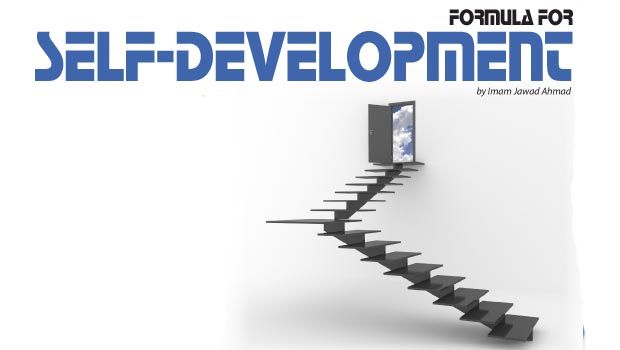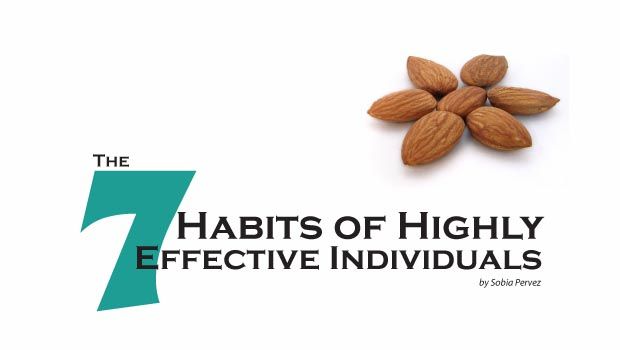Allah (SWT) puts a heavy emphasis on family as a unit because it is the core of a thriving society. If the family unit consists of weak links, then society is always vulnerable to the exploitation of the evil elements that exist within. However, if the family unit is strong, comprising of bolstering bonds within, then the society transforms into an Ummah, one nation under Allah, indivisible by anything.
“O! You who believe, save yourself and your families from Hell-fire, whose fuel are humans and stones (idols)…” (Al-Quran, 66:5).
The important thing to notice in the above verse is that Allah (SWT) first asks each one of us to protect ourselves from activities that would lead to Hellfire, and then we should also worry about our loved ones who are linked to us through blood. No wonder when we travel in airplanes and the crew demonstrates safety measures before taking off, they always stress putting the mask on ourselves first and then on our loved ones. How ironic is the fact that if we do not save ourselves first, then we will not be able to save our loved ones either? Hence, being selfish here is justified for the collective good of the society, whereas in all other things we are encouraged to be generous and think of others before ourselves, but that would be disastrous here.
Therefore, we are obliged by Allah (SWT) to be responsible for our children as they are the prime fruit of a family, and Allah (SWT) has entrusted us with nurturing them according to His teachings. If we pass this test of responsibility from Allah (SWT), then Paradise is the highest reward for it; otherwise, it is a straight route to Hellfire.
Subservience means transforming our organs and body parts to the conformity of Quran and Sunnah of the Prophet (pbuh)
“Verily your wealth and children are only a test, whereas Allah! With Him is a great reward (Paradise)” (Al-Quran, 64:15). Passing this test is not an easy task, as Allah (SWT) has forewarned us that our own family can be our enemies if they become an obstacle in our quest for Paradise by stopping us from implementing Allah’s rule in our lives.
“O you who believe! Verily, among your wives and your children there are enemies for you; therefore beware of them” (Al-Quran: 64:14).
On the contrary, if we groom and nurture our spouses and offspring in the shade of Quranic teachings and the sunnah of the Prophet (pbuh), then they become the most prized asset for us in this world and the next. This is the fulfillment of the trust of children bestowed upon us by the Creator who wants our legacy of good parenting to continue for generations to come. This can be done via optimal utilization of money and children, two of the most precious resources entrusted upon us by Allah (SWT).
“Wealth and children are the adornment of the life of this world. But the good righteous deeds, that last, are better with your Lord for rewards and better in respect of hope” (Al-Quran, 18:46).
How to convert our wealth and children into lasting good deeds for the next life is the real task of parenting and a challenge that we have to meet by utilizing them for the sake of this deen. The Quran is replete with incidences between Prophets of Allah and their children, which enlighten us on how to meet this challenge of parenting.
First and foremost is the skill of communication between parents and children so that both are on the same mental wavelength and share the same vision, as we see in the example of Prophet Ibraheem and his young son Prophet Ismail.
“And, when he (his son) was old enough to walk with him, he said: “O my son! I have seen in a dream that I am slaughtering you (offering you in sacrifice to Allah). So look what you think!” He said: “O my father! Do that which you are commanded, Insha’ Allah (if Allah wills), you shall find me of As-Sabirun (the patient)” (Al-Quran, 37:102).
Even though Prophet Ibraheem was not obligated to ask his son before fulfilling the command of his Lord, he valued the opinion of his son and also strengthened their relationship by giving respect and honor to his son. Thus, Prophet Ibraheem taught all humanity a moral lesson of parenting that we ought to have a strong bond with our progeny, such that they will never let down their parents’ expectations. Prophet Ismail not only lived up to the expectations of his father here, but even went one step ahead in bolstering the will of Prophet Ibraheem in this severe test.
The same is the case with the great grandson of Prophet Ibraheem when Prophet Yusuf confided in his father Prophet Yaqoob about his dream, and the father informed his son not to tell about it to other siblings because they might plot against him. Prophet Yaqoob strengthened his son’s will by reassuring him that Allah (SWT) has chosen Prophet Yusuf for a big task and test, as He did with his forefathers before, and that he will support every step of the way in his endeavors ahead.
Strong communication within family members gels the unit into an unbreakable network, which can wither every storm of catastrophe headed in their direction, as we see in the example of Prophet Ibraheem and his wife Hagar. When Prophet Ibraheem left her and their newborn baby Ismail in the desert of Makkah by the Kaaba without any reason, the only thing she asked was that did Allah (SWT) order him to do this? The Prophet replied in the affirmative and Hagar relaxed saying if that is the case, then Allah (SWT) will never waste us, for He is the Master who will not let down His Slaves.
This was the fruit of the tarbiyaah (nurturing) of Prophet Ibraheem with his wife Hagar that she did not argue with her husband even though she was being deserted with a newborn baby where there was no vegetation. Hence, the wife and son reaped the rewards of patience such that Allah (SWT) flowed pure zamzam water beneath the feet of baby Ismail and made the trekking of Safa and Marwah a lifelong ritual for Muslims until the Day of Judgment. Such are the dividends from the Creator when the family, as a unit, is in sync with its Master and His Commandments upon this earth.
Thus, Allah (SWT) showers upon those families who remain steadfast and firm in their commitment to Him collectively as a unit and not individually, because baraka resides in collectiveness and not in individualism. For this, the family members have to sacrifice a lot as we observed in the above examples of the family of Prophet Ibraheem. He was tested by Allah (SWT) for his spouse, his sons, and even his father Azar, as Allah (SWT) informs us in the Quran.
If we apply Quranic and prophetic teachings to our body parts, then a transformation of our character may begin
Truly, Prophet Ibraheem was tested the most from every aspect of family, such as a husband, father, and a son, but he never wavered in his loyalty and dedication to Allah’s path whatever came in his way. He addressed his father with utmost respect each time trying to persuade him to believe in Allah (SWT), whilst the father was adamant upon his disbelief and even threatened to punish Prophet Ibraheem. Yet, the forbearance of Prophet Ibraheem wins when he seeks the forgiveness for his father in spite of all this.
Such is the legacy of the father of prophets, Prophet Ibraheem, as he has set the benchmarks in every dimension of grooming a tawheed-oriented family so that we look towards him as a role model when steering our society from all perils of its evils today.





